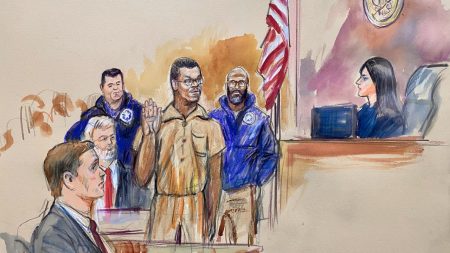Zohran Mamdani’s Challenging Path to Democratic Acceptance
After his surprising victory in New York City’s mayoral primary, democratic socialist Zohran Mamdani has faced a lukewarm reception from many within the Democratic establishment. Despite securing the party’s nomination, Mamdani continues to encounter resistance, particularly from New York’s traditional Democratic power brokers who remain hesitant to fully embrace his progressive platform and outsider approach to politics. This tepid response highlights the ongoing tensions between the Democratic Party’s establishment wing and its growing progressive movement, with Mamdani’s candidacy becoming a focal point for these internal party dynamics.
The reluctance to rally behind Mamdani stems from several factors, including concerns about his democratic socialist identification and policy positions that some party moderates view as too far left for the general electorate. His campaign, which centered on issues like affordable housing, economic inequality, and criminal justice reform, resonated strongly with younger and more progressive voters but has alarmed centrist Democrats who worry about alienating moderate and independent voters necessary to win the general election. This hesitation reflects broader national debates within the Democratic Party about its ideological direction and electoral strategy in an increasingly polarized political landscape.
Mamdani’s background as a community organizer and state assemblyman, rather than a traditional political insider, has contributed to the establishment’s wariness. His grassroots campaign challenged conventional political wisdom by building a coalition of working-class voters, young progressives, and community activists who have often felt marginalized by mainstream Democratic politics. This approach, while successful in the primary, has left some party veterans questioning whether Mamdani can effectively govern the nation’s largest city and maintain relationships with the business community, labor unions, and various stakeholders essential to New York’s complex political ecosystem.
The tensions surrounding Mamdani’s candidacy reflect deeper divisions about the future of the Democratic Party in urban centers like New York City. For decades, the city’s Democratic establishment has balanced progressive rhetoric with pragmatic governance that accommodated business interests and development. Mamdani’s unapologetically left-wing platform challenges this model, promising to prioritize working-class interests in ways that some fear could disrupt economic growth or city services. These concerns have led several prominent Democrats to maintain their distance from his campaign, offering only perfunctory endorsements if any at all, while others privately express hopes that his progressive agenda will be moderated before the general election.
Despite these challenges, Mamdani has continued to build his coalition and refine his message for the general electorate. His campaign has emphasized that democratic socialism in the New York context means ensuring basic necessities like housing, healthcare, and education are accessible to all residents, rather than radical restructuring of the economy. This framing has helped some skeptical Democrats become more comfortable with his candidacy, particularly as the alternative would be surrendering control of City Hall to the opposition. Gradually, some party leaders have begun to recognize that Mamdani’s ability to energize young voters and communities of color might offer electoral advantages that outweigh concerns about his ideological positioning.
The coming months will determine whether the Democratic establishment fully embraces Mamdani or continues to keep him at arm’s length. His success or failure will likely influence future progressive challenges to Democratic incumbents and shape the party’s approach to urban governance nationwide. For Mamdani himself, the challenge remains balancing the bold vision that won him the nomination with the coalition-building necessary to govern effectively in a diverse city with competing interests. If he can navigate these tensions while maintaining his core principles, he may not only win over reluctant Democrats but also demonstrate a new model for progressive leadership in American cities that combines idealism with practical governance.






